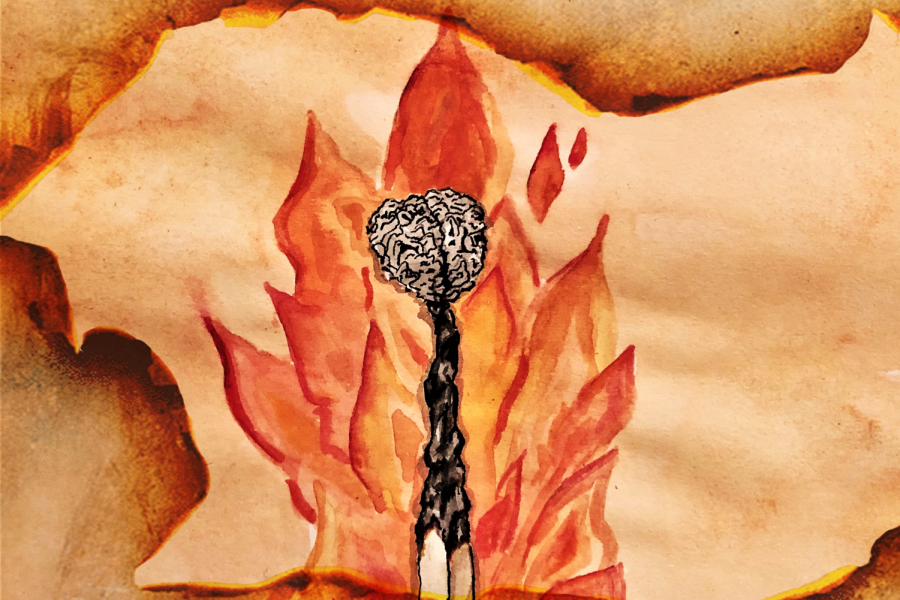Address burnout culture on campus
September 29, 2021
Two students nervously chat before a midterm. One complains to the other, “I only slept four hours last night because I spent most of my time cramming.” The other student responds, “Oh, well, I didn’t sleep at all studying for this test.”
Now the first student feels insecure about their effort. For the next test, they study all night, get no sleep and then brag about their experience, creating a vicious cycle that perpetuates unhealthy mental and physical health habits.
If this scenario sounds familiar, you are not alone. UT — a school with strong competition, tight deadlines, and stressful tests — is a compelling habitat for burnout. UT must address competitive burnout culture by changing its default testing strategy from standardized testing to more creative forms of assessment, such as critical group work or essays.
“I’ve seen this in a lot of my classes,” psychology sophomore Brooke Jordan said. “It’s always a flex, like, oh, I didn’t get any sleep last night, I studied all weekend … I’ve been guilty of it, too. It’s what feels like what is required to do for each of these classes.”
Jordan’s experience isn’t uncommon but rather a symptom of a burnout culture that not only takes away from one’s physical and mental health, but also limits the growth that so many people value as part of the college experience.
“With student overwork culture and everything, it feels as though I don’t have time to do the other protocol, which is the actual social life and learning about myself,” Jordan said. “All I have time to do is study for my classes and make good grades because it’s a big part of UT’s culture. Everybody wants to be better than the next person.”
While everyone can see the detriments of this cycle, burnout culture is an issue that’s difficult to target and change. After all, how can one eliminate a problem that’s so second nature to us in a competitive atmosphere that, as Jordan said, we often contribute to?
Samuel Echevarria-Cruz, a sociology professor at ACC who is part of the PACE hybrid program at UT, offers possible solutions.
“Learning has very little to do with comparative reference points. Sometimes it can be helpful, sure. … But this is all part of a larger problem,” Cruz said. “And that’s the testing culture. You know, when you’re writing essays, when you’re doing critical thinking projects … for the most part, the focus is on learning.
It’s possible for UT to maintain a high assessment standard without perpetuating burnout culture. Instead, UT can implement alternate assessment strategies that motivate students to learn and achieve a high level of understanding of the subject at hand without letting them fall back into the unhealthy cycle of burnout.
“Testing, on the other hand, is such an easy way to make comparisons,” Cruz said. “And you might find that all sorts of students who are average on their tests are actually fantastic at that field when you give them alternative assessment strategies.”
In Jay Hartzell’s recent inauguration speech, he stated, “I don’t want to wake up in 10 years and see that we didn’t do enough, didn’t rise up, or didn’t take enough risks.”
Let UT be the first university that, while maintaining a high standard of education and assessment, has just as high of a bar for its students’ physical and mental well being.
Zhang is an undeclared PACE freshman from Katy, Texas.












